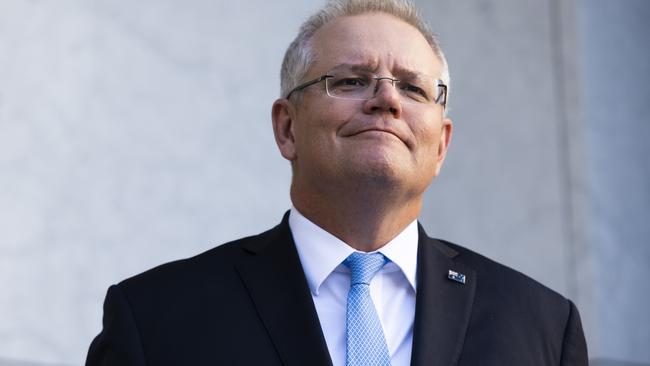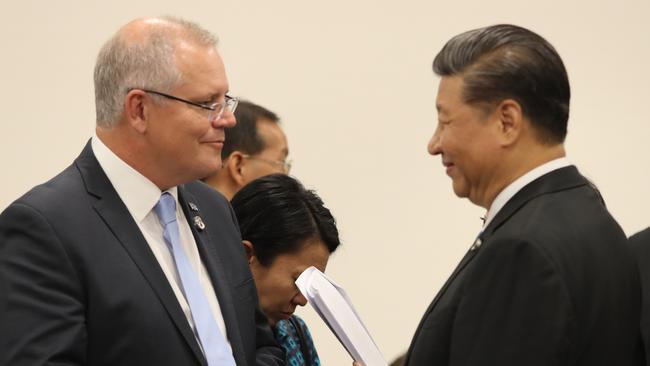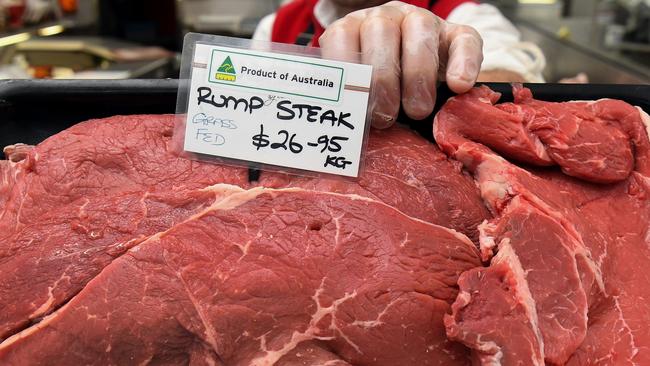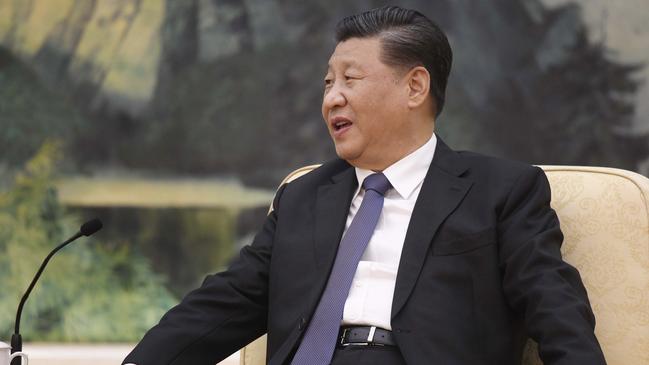Peta Credlin: Australia China trade standoff raises long-term security questions
While the system Chinese people are forced to live under is now crystal clear, it’s much less clear how Australia can and should respond to it in the long-term, writes Peta Credlin.
Rendezview
Don't miss out on the headlines from Rendezview. Followed categories will be added to My News.
The coronavirus hasn’t changed the nature of the Chinese regime, but it has made it much more obvious.
China’s insistence through January that there was no human-to-human transmission taking place in Wuhan, the savage criticism of Australia for its travel bans on China in early February, and the arrest and humiliation of the heroic whistleblowing Chinese doctors have highlighted the secretive, self-serving and repressive nature of China’s communist dictatorship. But while the nasty system that the Chinese people are forced to live under is now crystal clear, it’s much less clear how Australia can and should respond to it.
China takes 35 per cent of our exports and is one of our largest sources of migrants and foreign students and a significant source of foreign investment.
No one worried in the old days when Britain was our largest market, largest source of investment and birthplace of our migrants because the “mother country” was the home of our parliamentary-style democracy. Similarly, with the dominance of US investment in recent times, sharing common values mitigates the risk that the dollars come with strings attached.
Not so others.

While Chinese people, no less than Britons and Americans, have made wonderful migrants to Australia, the Chinese communist government is a different proposition altogether. It bullies its neighbours, dots the South China Sea with a series of fortified islands, throws a million Uighurs into re-education camps and subjects its own people to an Orwellian system of hi-tech-enabled political conformism under the guise of “social credit”.
China’s outspoken ambassador here has threatened Australia with trade reprisals for having the temerity to demand an independent international investigation into how COVID-19 started and got out of control, killing 300,000 people so far and sending the world into the worst economic slump since the Great Depression. Likewise, faced with European demands for an inquiry, China’s ambassador to Germany has asked “could German cars be deemed unsafe by Chinese authorities” and China’s ambassador to Sweden has said on radio that “we treat our friends with fine wine but for our enemies we have shotguns”.
Plainly, we are not dealing with an ordinary country here, but one that’s more than ready to throw its weight around given China’s strong cultural superiority complex, in part a result of Marxist-Leninist ideology as well as the historical notion of being the world’s “Middle Kingdom”.

Yet any time we think of reducing our universities’ dependency on overseas students, diversifying our supply chains away from China, limiting foreign ownership, or scaling back record levels of immigration, there are yelps from the policymaking establishment that we’re embracing protectionism and destroying economic growth; and, if that doesn’t stifle any rational debate, there’s the sure-fire debate-crushing accusation of racism; often the Left’s last resort.
Chinese people have been here in Australia for a long-time. Indeed, in 1861, Chinese gold-diggers were nearly 10 per cent of the population of Victoria. Trooper Yin Gan was one of the first Anzacs ashore at Gallipoli. Senator Thomas Backhap served in the federation parliaments. There were at least 213 Chinese-Australian soldiers in the first AIF; 36 of them were killed in action and 23 were decorated for gallantry.
Like them, the vast majority of Chinese-Australians have joined Team Australia – even though, as far as the Chinese government is concerned, all ethnically Chinese people owe their first loyalty to it.

But how much of a difference is there between those who migrate here permanently to work and raise their families, and those who just use this country as a ‘bolt hole’ via a whole range of obscure temporary visa arrangements that now I’ve gone looking, concern me more and more.
According to the Department of Home Affairs, the number of Chinese-born people in Australia has increased in just four decades from under 20,000 at the 1976 Census to over 500,000 at the 2016 Census. More significantly between the 2011 and 2016 Census’, the number of China-born people in Australia has increased by a massive 59.8 per cent.
Emblematic of all our China tensions was a mini-riot at the University of Queensland last year. First, hundreds of students gathered in the Great Court to demonstrate solidarity with Hong Kong (it’s worth noting that 34 per cent of all Australians with Chinese ancestry were born neither here nor in China but in Hong Kong, Singapore, Malaysia or Taiwan). Then, dozens of pro-Beijing thugs gatecrashed the event, reportedly throwing punches and chanting “China is great” leading to a four-hour stand-off. And shamefully, the Confucius Institute-hosting university is now taking disciplinary action against the main organiser of the original protest in favour of freedom for Hong Kong.

Last week saw a telling spat over China between two pillars of Canberra’s policy establishment. First, the most significant public servant of his generation, Dennis Richardson, said that “national security cowboys” were endangering a critical relationship. Then Peter Jennings, the head of the Australian Strategic Policy Institute retorted that Australia needs “more cowboy and less kowtow, more principle and less of the ‘pragmatism’ that has brought us to this sorry point” with China.
But even Richardson, who denies that we’ve put short-term economic gain ahead of long-term national security, concedes that we need to increase “resilience”, “look at supply chains” and raise military spending towards 3 per cent of GDP.
None of this is easy. On top of everything else he’s trying to juggle because of this virus, the China relationship is just another complication the Prime Minister doesn’t need. Because his foreign minister is able but publicly at least, invisible, too much is left to Scott Morrison when instead, the leader should be a ‘reserve power’ on international relationships rather than dragged into the commentary on any given day.
He’s not helped either by business types telling him to give up on Australia’s demand for a full and immediate inquiry into this pandemic; to just ‘shut up and take the money.’
Of course, this all underlies why business leaders should just stick to making money and leave the politics to the elected politicians because in all of this, our national security and values should never have a price.

